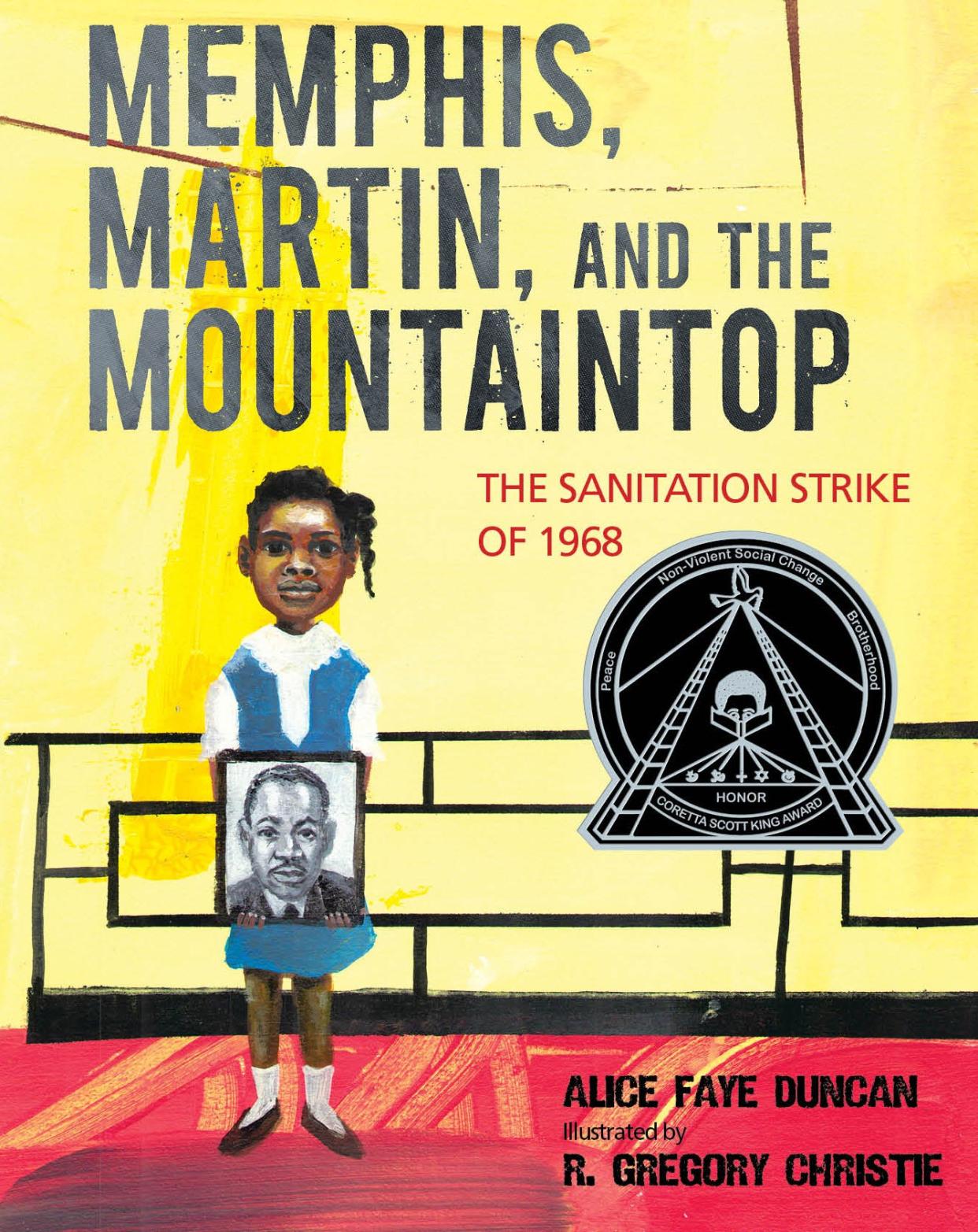Mark Woods: MLK book never made it into Duval classrooms, but its story is worth retelling

At the city’s annual Martin Luther King Jr. Breakfast, Jacksonville students were honored for essays they wrote based on a King quote — one about the significance and dignity of work.
At the same time, a children’s book about MLK and the significance and dignity of work — a story built around the 1968 sanitation workers strike in Memphis — was not being read in Duval County Public Schools.
There are, of course, a lot of books not being read in schools. But “Memphis, Martin, and the Mountaintop,” by Alice Faye Duncan, is of note because it was delivered to the school district last summer. Before it went into 4th-grade classrooms, copies were returned to the distributor.
It has been reported that after the Florida Legislature passed a series of laws restricting what can be taught in public schools about race, gender and sexual orientation, DCPS pulled nearly 200 books for review and rejected 47 of them — including “Memphis, Martin, and the Mountaintop.”
The district says this gives an inaccurate picture of what happened. A spokesperson said in an email this week: “We ordered almost 1,300 titles for K-5 classroom libraries. Because some of the titles were not available, the publisher sent substitutions to our original order. All substitute titles were returned to the publisher without undergoing any review process. This particular book fell into that category.”
The idea that this has nothing to do with political pressure from Tallahassee adds to what has become a recurring echo in 2023 Florida, from the cancellation of the play “Indecent” at Douglas Anderson School of the Arts to the rejection of books.
And maybe that’s true here.
I know from watching Duval students spend their summer vacation at Stanton High, working with teachers and administrators to create curriculum about local African-American history, that the district has plowed ahead with efforts to better tell these stories.
One thing is self-evident: “Memphis, Martin and the Mountaintop” isn’t in public school libraries here. Which is too bad. Because it’s a story worth retelling far beyond Memphis.
I checked out a copy of the book from the Jacksonville Public Library (it’s available for check out at several branches, but only for viewing at the Main Library) and then made a call to Memphis — to Alice Faye Duncan.
'All Labor Has Dignity'
Duncan, the daughter of two Memphis teachers, is an educator and a school librarian, with a master’s degree in library and information science from the University of Tennessee.
Her first children’s book was about the National Civil Rights Museum, located in the former Lorraine Motel in Memphis.

After that book was published, she not only talked to students in her school, she’d get asked to talk to children in schools all over Memphis. She’d often ask them what they knew about MLK. Their answer was that he was killed at the Lorraine Motel. End of story.
“Here I am in the city of Memphis, the place where he was assassinated, and the only thing that children could tell me was he was killed at the Lorraine Motel,” she said. “They couldn’t tell me why he was in Memphis, or give me some idea why he was killed.”
She decided she needed to go to the public library and find a picture book she could share with them, something on their level that could give them a fuller idea of what happened in Memphis in 1968 — how King came to Memphis to support the 1968 sanitation workers strike.
While every MLK Day we tend to focus on King delivering his “I Have a Dream Speech” to the masses on the Washington Mall in 1963, it is worth recalling the “All Labor Has Dignity” speech he gave two weeks before his death, to an overflow crowd in a Memphis church.
“You are doing many things here in this struggle,” he told those gathered. “You are demanding that this city will respect the dignity of labor. So often we overlook the work and the significance of those who are not in professional jobs, of those who are not in the so-called big jobs. But let me say to you tonight, that whenever you are engaged in work that serves humanity and is for the building of humanity, it has dignity, and it has worth.”
It’s a speech, and a part of his legacy, that often gets overlooked. Even, Duncan says, in Memphis.
“As I spoke with my students, I discovered that most of them did not know Dr. King was organizing a Poor People’s Campaign to demand a living wage for all American workers in 1968,” she said. “I wanted them to understand clearly that at the end of his life he was fighting for economic rights — not just for Black people, all people.”
When she got to the Memphis library, she could find plenty of children’s books about King — King in Selma, King in Montgomery, King in Washington.
But she couldn't find a children’s book about King in Memphis.
“Not one,” she said.
So she decided to write one.
She spent 10 years digging through archival materials, interviewing people who were there, writing and working with illustrator R. Gregory Christie to create a book for children.
She eventually decided to take all the facts she had gathered and turn it into a fictional story — of a 9-year-old girl named Lorraine.
Lorraine’s father was a sanitation worker, her mother a maid.
Duncan points out that many of the sanitation workers in 1968 Memphis were former sharecroppers, up from the Mississipi Delta. They never finished high school and couldn’t read.
In her book, Duncan has Lorraine read the newspaper to her father. That’s how he learns that Dr. King is coming to town. His daughter reads the headline to him.
“So the book also is a commentary on the power of literacy,” Duncan said.
Duncan based the character of Lorraine on a real-life Memphis teacher. She has the book begin sometime after 1968 — presumably in modern-day America, a time full of echoes of the past — with Lorraine recalling what happened in Memphis when she was 9 years old, the age of many 4th graders.
“I must tell the story,” Lorraine tells readers on the opening page. “You must tell the story — so that no one will forget it.”
mwoods@jacksonville.com
(904) 359-4212
This article originally appeared on Florida Times-Union: Book about MLK, sanitation strike, never made it into Duval schools

